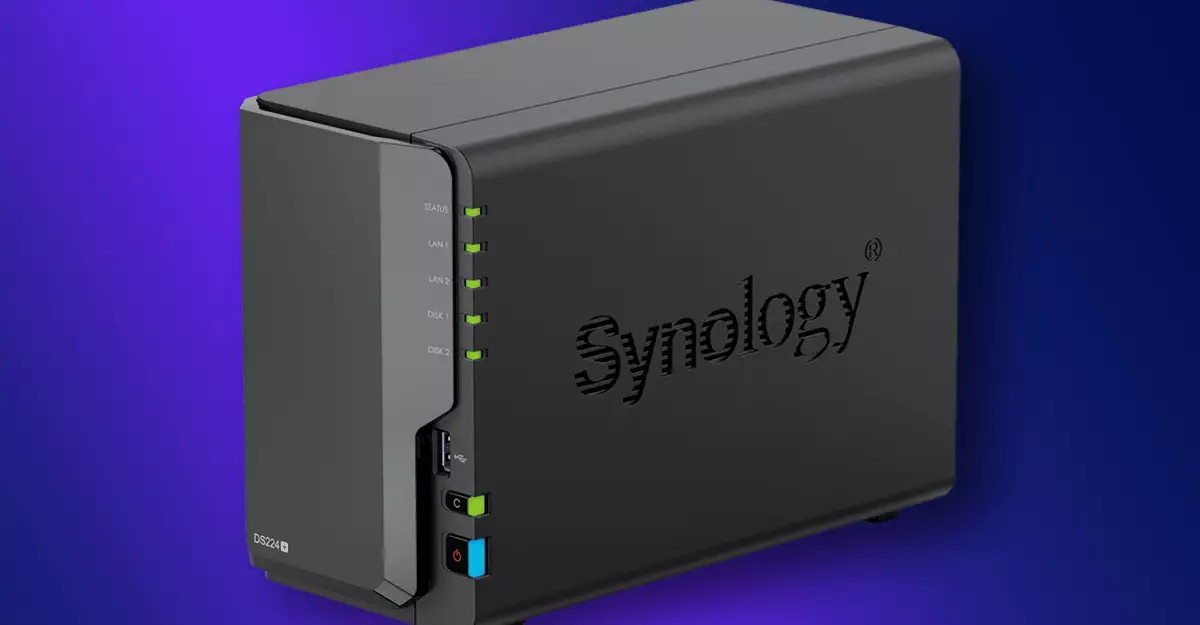Synology is set to reshape the landscape of its network-attached storage (NAS) devices with an upcoming policy change regarding hard drive compatibility. According to a report from Ars Technica, the company has announced that beginning in 2025, only Synology-branded hard drives and those it has certified will function optimally with its new Plus Series NAS models. The repercussions of this shift extend primarily to future purchases, exempting current models from these stringent regulations. While existing Synology users can breathe a sigh of relief, the new policies raise important questions about user choice and flexibility in storage solutions.
The Implications of Restricted Choices
Synology’s shift towards a restricted compatibility model is a dual-edged sword. On one side, by certifying specific drives, the company claims to bolster system performance and reliability. This assertion is supported by internal testing that reportedly indicates a higher failure rate among non-certified drives. However, the crux of the argument lies in what it means for the consumer. By eliminating the ability to use a wider variety of third-party drives, Synology is limiting the market options for individuals and organizations looking for affordable, versatile storage solutions.
This move could prompt users to reconsider how much they are willing to invest in their data management systems. Synology owners who previously enjoyed the flexibility of selecting from various brands may now feel tethered to Synology-certified drives, which could potentially hike up costs significantly. Let’s face it, tech enthusiasts and everyday users alike find joy in custom configurations, often tailored to their specific needs and budgets. Restricting these choices may not only influence purchasing decisions but could also create a perception of market monopolization.
Compatibility versus Innovation: Striking a Balance
It is important to examine the rationale behind this restriction. Synology emphasizes that the changes will reduce compatibility issues and enhance reliability. This sentiment underscores a growing trend in technology where companies prioritize user experience, albeit at the potential cost of consumer freedom. While standards and checks are critical for maintaining system integrity, they should not come at the expense of innovation or choice.
Moreover, this restriction sets an unsettling precedent within the industry. There is an inherent risk that other tech companies may follow suit, emulating Synology’s approach to hard drive compatibility. This potential ripple effect affects not just the consumer but also third-party manufacturers who may find it increasingly challenging to compete. When consumer electronics become less about choice and more about compliance with company policies, innovation takes a backseat.
Assessing the Benefits of Certification
Yet, it’s not all doom and gloom. There could be genuine benefits to Synology’s decision. Certified drives may indeed enhance the user experience by simplifying setup processes and reducing the frustration that comes from drive incompatibility. For users who prioritize reliability—such as small businesses or content creators—a more curated selection of drives might provide peace of mind when it comes to data integrity.
Whether this move can be deemed beneficial depends on the priorities of individual users. For those who value a seamless experience and are willing to pay a premium for that assurance, Synology’s initiative may prove advantageous. Conversely, for budget-conscious consumers or tech enthusiasts who enjoy exploring alternatives, the restrictions will feel limiting.
The Current Landscape and Future Outlook
As we delve into this evolving scenario, it’s essential to recognize that technology is always advancing. While Synology’s new policies may invoke frustration, they also highlight the need for consumers to remain adaptable. Current users will not experience immediate repercussions, and for the foreseeable future, they retain their freedom of choice. However, new buyers must navigate this changing environment with a critical eye on their storage needs and budgeting strategies.
The unfolding landscape of Synology’s NAS devices is a microcosm of the broader tech industry. As companies like Synology adopt stricter defined frameworks, the question remains: how will consumers respond? Will they embrace the guaranteed performance of certified drives, or will the restrictions inspire a backlash that fuels demand for more diverse options? The balance between reliability and choice is delicate, and the implications of this decision reverberate far beyond the walls of Synology’s storage solutions.


Leave a Reply